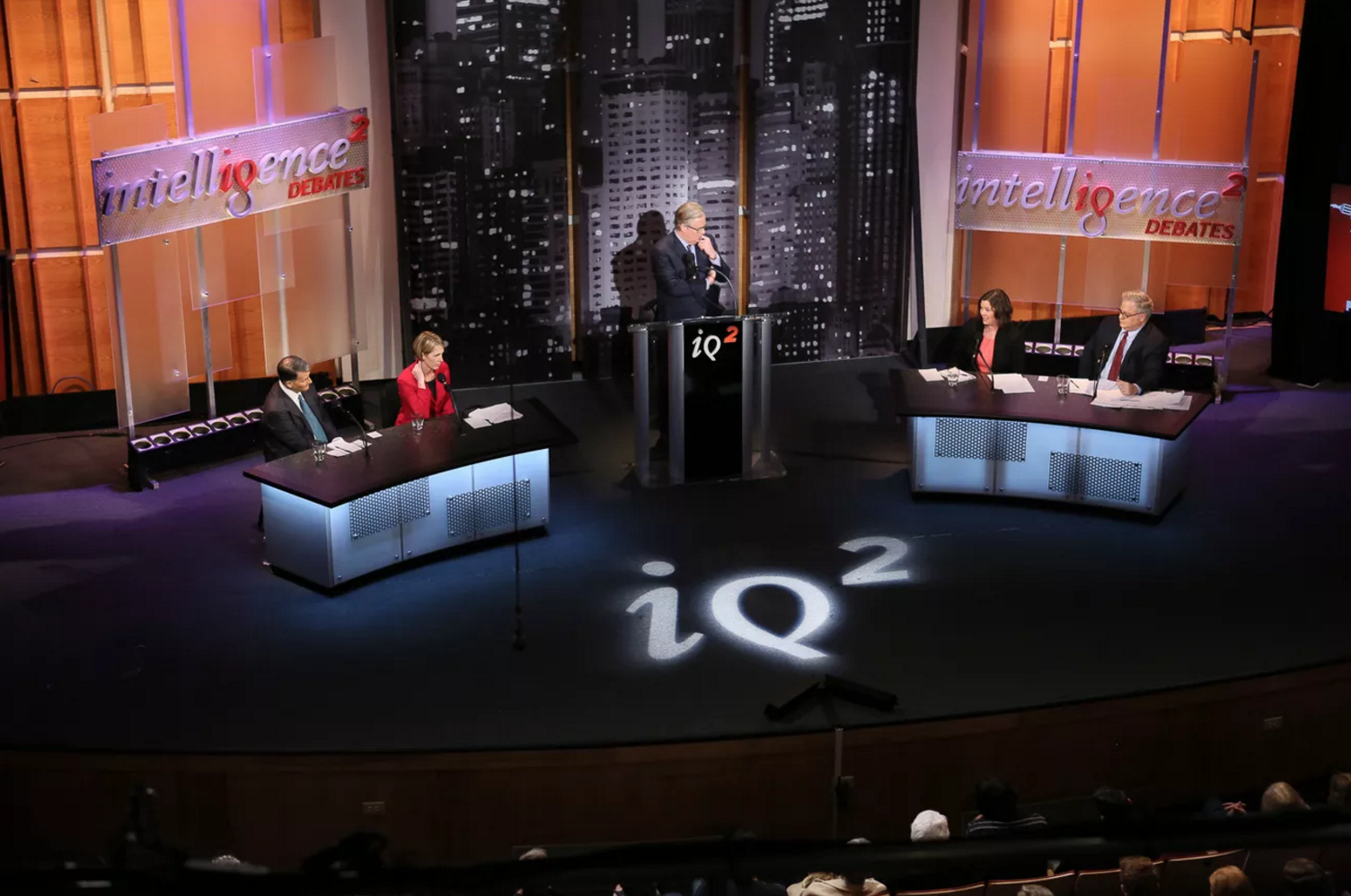Debate Overview:
As events such as the Arab Spring, Syrian civil war, Israel-Palestine conflict, and the rise of ISIS have revealed a region in turmoil, some argue that the United States has shown considerable restraint in its relations with Middle Eastern countries, when compared to its history of global intervention. While some see a lack of action and praise it as disciplined leadership, others criticize it as a display of weakness and declining influence. As a global power, does America hold a responsibility to enforce order in this unstable region? Moreover, how does the role of peacekeeper fit within its broader foreign relations and ethical obligations? Intelligence Squared US (IQ2US) took on this polarizing topic with a debate on the motion, “Flexing America’s Muscles in the Middle East Will Make Things Worse.”
READ REMARKS....







